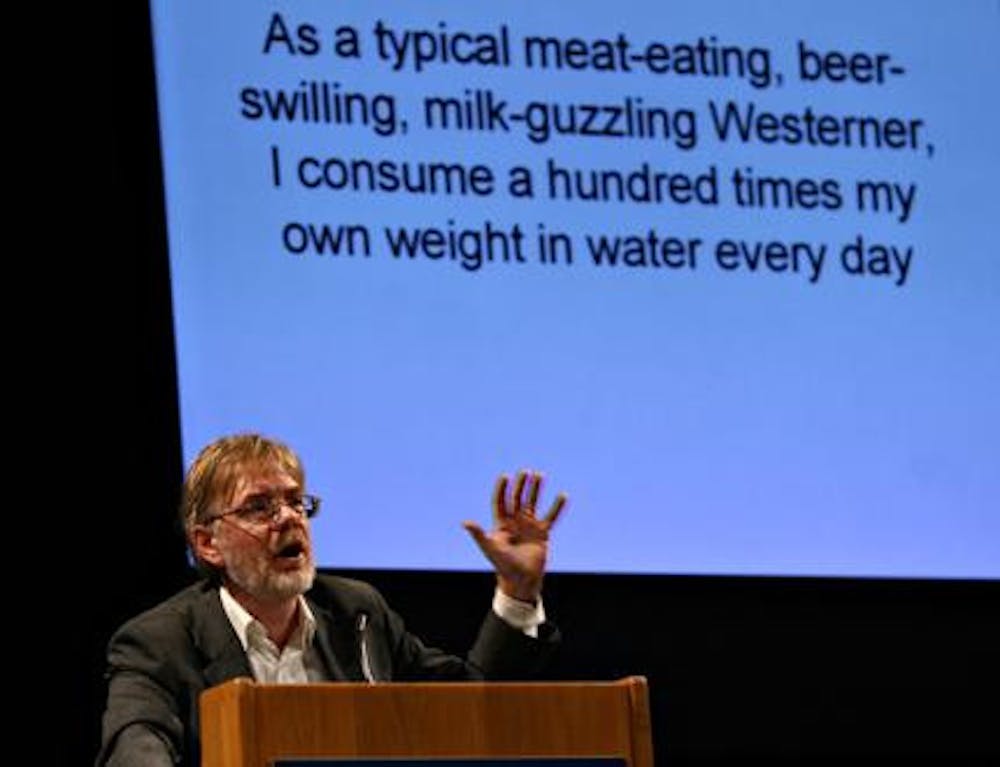Fred Pearce drinks his own sewage water.
Years from now, more and more people will be doing the same to decrease water use in the wake of a global water crisis, Pearce said during a speech Wednesday night sponsored by the UF Dean of Students Office and the Common Reading Program.
Pearce, a British author, spoke about his book "When the Rivers Run Dry: Water - The Defining Crisis of the Twenty-First Century," which explains the worldwide water shortage.
Most people believe there is enough water for everything because the planet looks like it is covered in water, but that isn't true, Pearce said.
Pearce asked the audience of about 300 at the Phillips Center for the Performing Arts to think about the amount of water they consume each day through flushing the toilet and showering. However, he said most water consumption comes from food and what it takes to make it.
"As a typical meat-eating, beer-swilling, milk-guzzling Westerner, I consume a hundred times my own weight in water every day," Pearce said.
There will soon be a crisis in India's food production, he said, and other countries will follow, especially the heavily populated areas of Asia.
"For virtually all of its history, China has been able to feed itself, but no longer," he said. "They don't have enough water to grow the crops that they need. That's a major crisis for the world."
Pearce said researchers estimate that by 2025, each person will have to cut back on the equivalent of one loaf of bread per week, and for some people, it may be their only loaf for that week.
He said that people should refrain from flushing the toilet after each use, turn the faucet off when brushing their teeth and water their gardens at night.
"Recycle shower water to flush the toilet or use that to water the garden as well," Pearce said.
Eric Bendler, a UF natural resource conservation senior, said he already has two barrels he uses to collect rain to water his garden.
"We're adolescent about our concept of how long things last," Bendler said. "All we're concerned about is what is happening to our stock market tomorrow, not what is happening to farmers in India."






